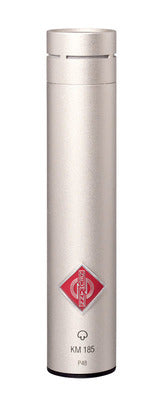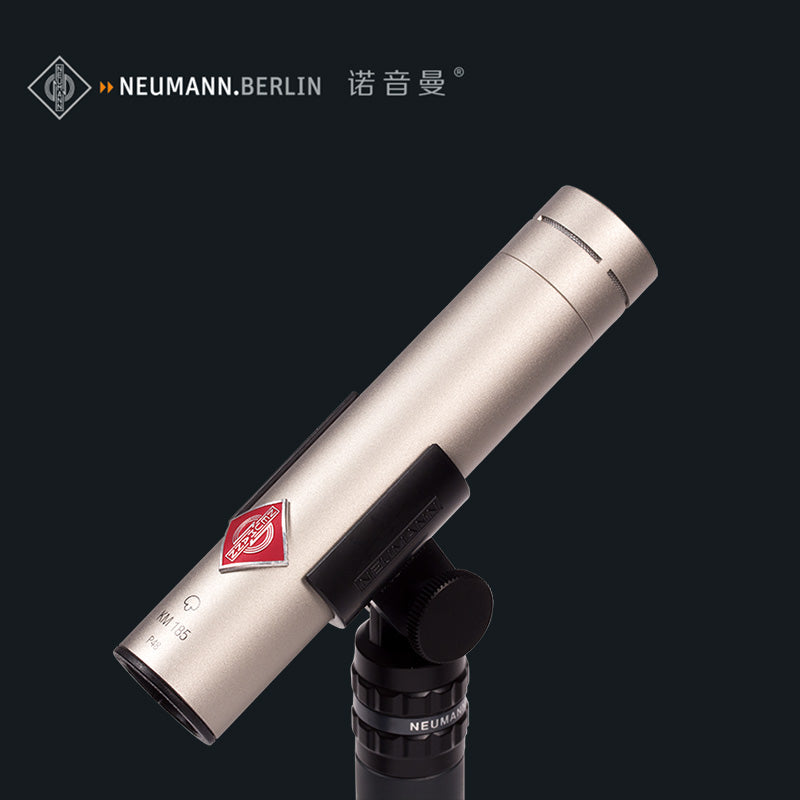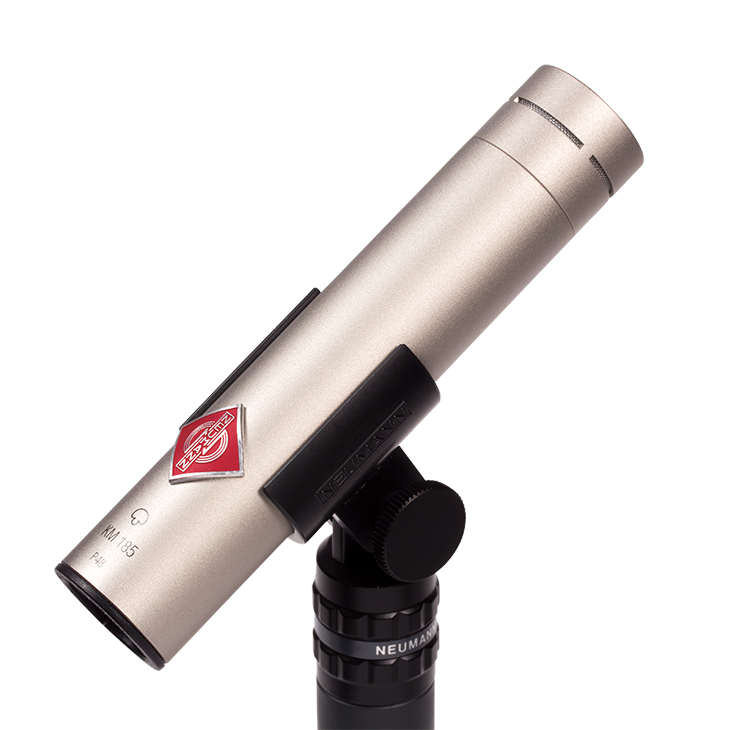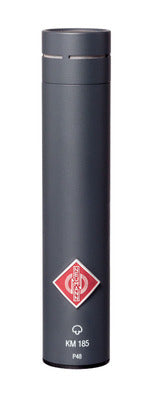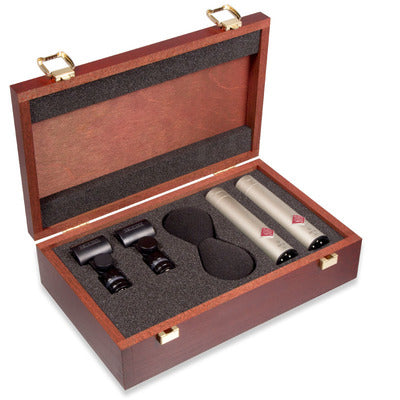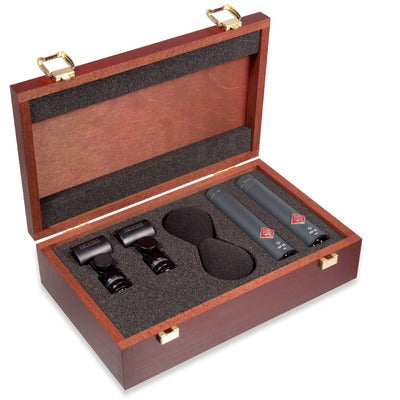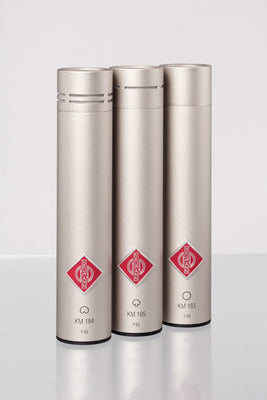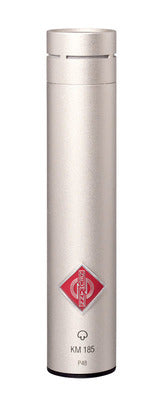
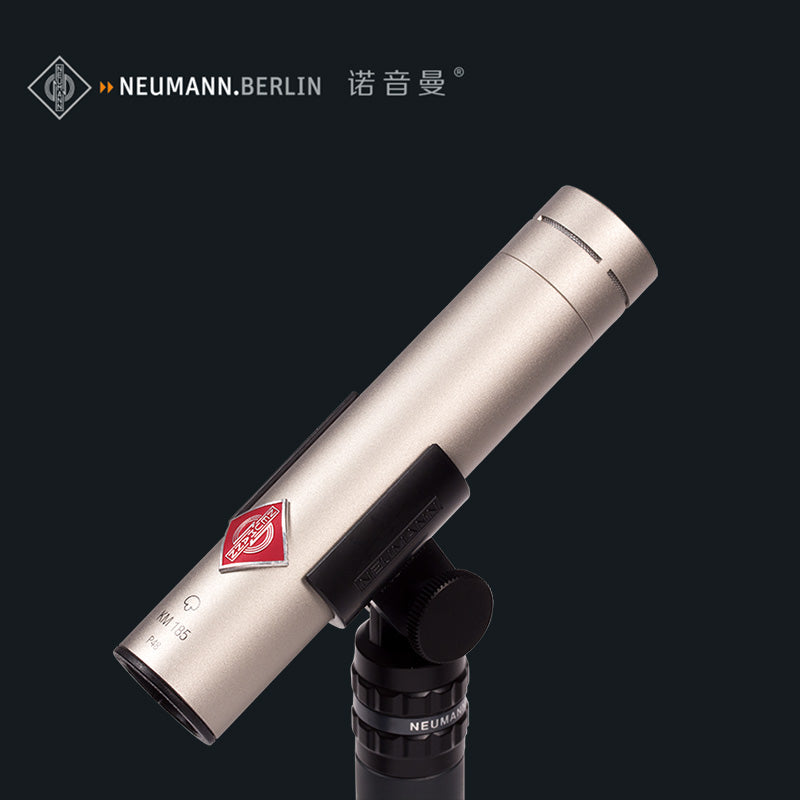
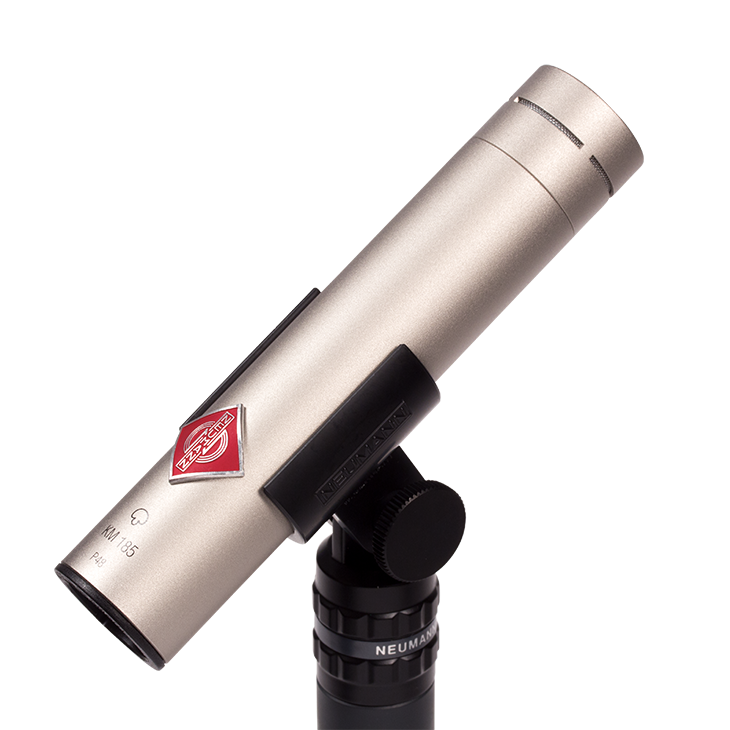
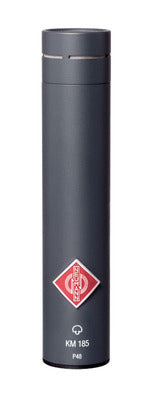
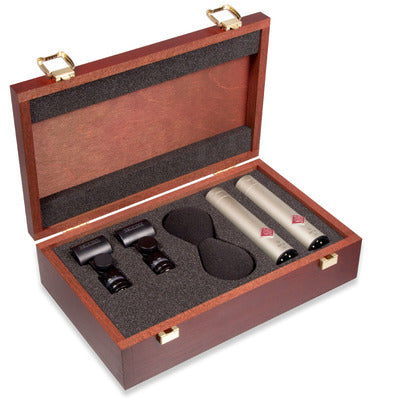
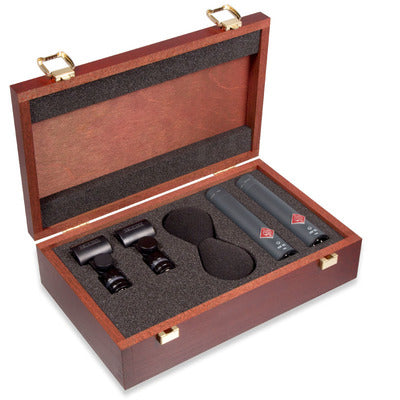
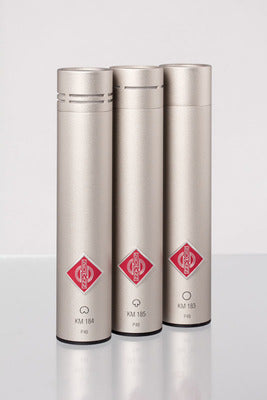
可摺疊的內容
Description
Uncolored, Transparent, Versatile
The KM 185 is a state-of-the-art small diaphragm condenser microphone with a tight, frequency-independent hypercardioid polar pattern. Its very natural, transparent sound with low self-noise and high SPL capability have made the KM 185 a worldwide stage and studio standard for many applications ranging from classical piano to heavy metal drums.
Faithful
While many microphones, these days, are designed to add some sonic imprint of their own, there are many applications that require a faithful reproduction of the original acoustic event, without adding or removing anything. That’s where the Neumann Series 180 comes in.
The Neumann Series 180 consists of three members with different pickup patterns: KM 183 (omni), KM 184 (cardioid), and KM 185 (hypercardioid), thus covering the majority of stage and studio applications. Because the Series 180 microphones are non-modular, they are more cost-effective than the modular Series KM A and KM D (which offer a wide range of interchangeable capsule heads for analog and digital output stages).
Hypercardioid
Despite its attractive pricing, the KM 185 offers state-of-the-art Neumann engineering. Its hypercardioid pattern is frequency-independent; rejection of rearward sound (120°) is excellent, even at low frequencies. In practical usage, there is no sound coloration over a wide pickup angle, which is crucial in multi-microphone setups and for precise stereo/surround imaging. The KM 185’s frequency response is very smooth and linear with a slight treble lift around 10 kHz for added brilliance. Its innovative transformerless head amplifier offers a wide dynamic range of 127 dB and is carefully designed to maintain the capsule’s sonic integrity. The KM 185 has a very low self-noise of only 15 dB-A and can handle high sound pressure levels of up to 142 dB free from distortion. Due to its low impedance output stage, the KM 185 can drive long cable runs of up to 300 meters (1000 feet) without transmission losses.
Applications
The KM 185 is a universal microphone for studio and stage applications. Its transparent sound makes the KM 185 a superb microphone for acoustic instruments, such as piano, acoustic guitar, upright bass, violin, cello, wind instruments, drums and percussion. Its high rejection at 120° without off-axis coloration makes the KM 185 a perfect problem solver in demanding applications, such as recording the snare drum while suppressing spill from the hi-hat. Although the KM 185 is not specially optimized for the human voice, it is often used for classical vocals and whenever sonic authenticity is paramount. Due to its small size, the KM 185 is visually unobtrusive and well suited to TV and radio applications.
- Uniform hypercardioid pattern without off-axis coloration
- High suppression of unwanted sound
- Linear frequency response with a slight treble lift
- Low self-noise (15 dB-A)
- Low impedance output for long cable runs without transmission losses
- Compact size, visually unobtrusive
Data and Diagrams
| Acoustical operating principle | Pressure gradient transducer |
|---|---|
| Directional Pattern | Hypercardioid |
| Frequency Range | 20 Hz ... 20 kHz |
| Sensitivity at 1 kHz into 1 kohm | 10 mV/Pa ± 1 dB |
| Rated Impedance | 50 ohms |
| Rated load impedance | 1 kohms |
| Equivalent noise level, CCIR¹⁾ | 24 dB |
| Equivalent noise level, A-weighted¹⁾ | 15 dB-A |
| Maximum SPL for THD 0.5%²⁾ | 142 dB |
| Signal-to-noise ratio, CCIR (re. 94 dB SPL)¹⁾ | 70 dB |
| Signal-to-noise ratio, A-weighted (re. 94 dB SPL)¹⁾ | 79 dB |
| Maximum output voltage | 10 dBu |
| Supply voltage (P48, IEC 61938) | 48 V ± 4 V |
| Current consumption (P48, IEC 61938) | 3.2 mA |
| Matching connector | XLR 3 F |
| Weight | approx. 80 g |
| Diameter | 22 mm |
| Length | 107 mm |
1) according to IEC 60268-1; CCIR-weighting acccording to CCIR 468-3, quasi peak; A-weighting according to IEC 61672-1, RMS
2) measured as equivalent el. input signal
Diagrams
Hypercardioid KK 185 + KM-A/KM-D



